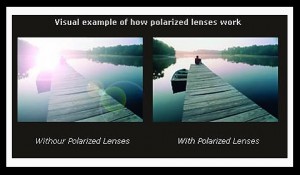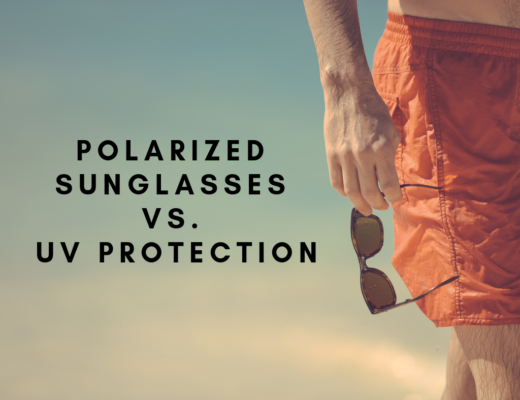 Sunglasses are not just a fashion accessory – they are a way of protecting your eyes from environmental conditions. Polarization is one of the most-harped about features of sunglasses that may make you think it is important for your eye health. This statement, though not entirely false, isn’t entirely true either. Here is everything you need to know about polarization and polarized sunglasses to help you decide.
Sunglasses are not just a fashion accessory – they are a way of protecting your eyes from environmental conditions. Polarization is one of the most-harped about features of sunglasses that may make you think it is important for your eye health. This statement, though not entirely false, isn’t entirely true either. Here is everything you need to know about polarization and polarized sunglasses to help you decide.
What Is Polarization?
It is the capacity of certain materials to block out specific light rays.
When the sunlight falls on shiny and reflective surfaces, it becomes disoriented. The light rays are reflected in different directions. When this reflected light falls on the retina, it may cause discomfort and stinging sensation as it does not follow a linear pattern. Another name for this behavior of light rays is “glare”. This is why the surface of water appears silver, shiny and opaque.
Polarized materials (or lenses to be more relevant) have the tendency to block out those light rays that do not follow the natural pattern. Such reflected light rays are also called as “horizontal light”. In doing so, it allows for greater clarity of vision and allows you to see beyond reflections. Hence the primary purpose of polarization in sunglasses is to reduce glare.
>> SHOULD I BUY POLARIZED SUNGLASSES?
>> POLARIZED VS. NON-POLARIZED SUNGLASSES
Polarization and UV Protection
Polarization is nowhere remotely associated with UV protection – the two phenomena are mutually exclusive. Nevertheless, most polarized lenses are made from polycarbonate materials. This material is known to have UV blocking properties. So while polarization does not block UV radiations, the material of the lens may be able to do so.
All polarized lenses are not made from polycarbonate material and hence may not provide the desired level of protection. It is better to have your sunglasses tested at a trusted optician to establish their effectiveness in protecting your eyes from the environment. Be wary of those sunglasses that involve a layer or sheet placed on top of the lens for polarization. This is because not only does their “polarization” wear out with time, but also their efficacy against UV radiation and blue light cannot be guaranteed.
Polarized Sunglasses Are Better For Your Eyes?
Contrary to popular belief, polarized sunglasses are not generically beneficial for all. Although these are efficient in minimizing glare, improving vision and promoting eye comfort, there are instances when using polarized sunglasses may actually prove to be fatal for you. It all depends on the situation where you use the sunglasses.
For instance, it may be extremely dangerous to use polarized glasses while snowboarding. This is because in reducing glare, polarization will also eliminate the light rays reflected from the unequal peaks of snow. This increases the risk of a fall due to miscalculated steps as you will not be able to see the lines of differentiation properly.
Polarization may also pose difficulties while looking at LCDs and other gadgets like mobiles. This is because the surface of LCDs and mobile screens is usually polarized. Looking through polarized lenses at polarized screens distorts vision. Nevertheless, their benefits while driving, sporting, swimming and performing similar activities are unmatched!



